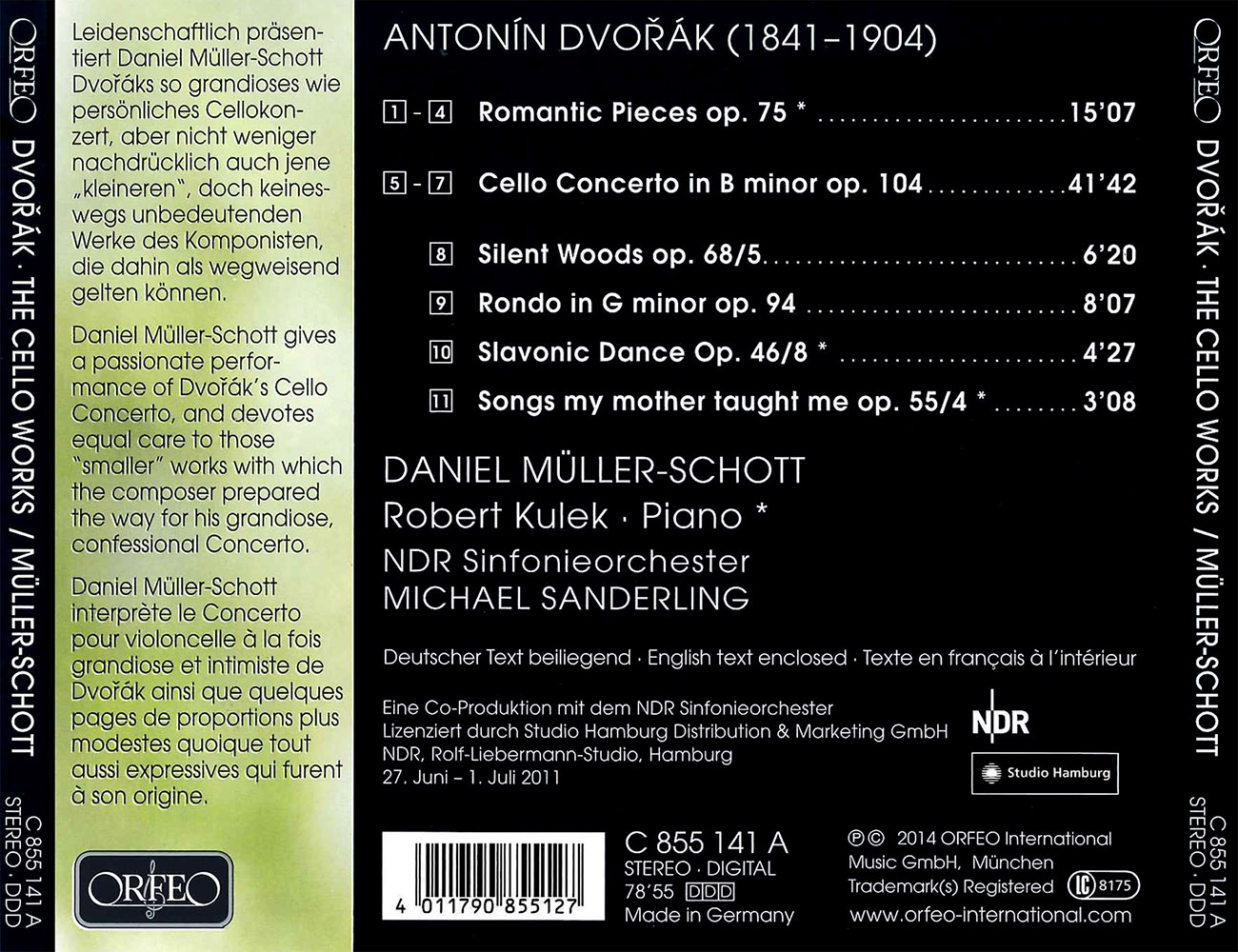Dvorak: The Cello Works
Antonín Dvořák’s Cello Concerto in B minor is one of the absolute masterpieces of the genre, and every world-class cellist has naturally been keen to take it into his repertoire. This is also true of Daniel Müller-Schott, who in 2014 will be performing it in the great concert halls of Europe and in the Lincoln Center in New York – thus in the very same city where Dvořák worked as a conservatory director and where he wrote the concerto. Dvořák began his work in passionate, stormy mood, but completed it in lyrical, elegiac vein under the shadow of the illness and death of his sister-in-law Josefina, who had been his own first love. At the same time that he is traversing the world’s stages with Dvořák’s concerto, Daniel Müller-Schott is now also releasing a recording of it, together with the NDR Symphony Orchestra under the baton of Michael Sanderling. Daniel Müller-Schott’s new recording also includes several chamber music works and arrangements that offer wonderful proof of how Dvořák gradually accustomed himself to the cello as a solo instrument, up to the point when he composed his concerto in 1894-5. There is the catchy Rondo in G minor op. 94 that Dvořák wrote in 1892 for a chamber music tour, and Silent Woods op. 68/5, an arrangement made for the same tour whose title perfectly matches the peaceful, meditative mood of the work itself. Both pieces can be heard on Daniel Müller-Schott’s CD in Dvořák’s own orchestral versions. Together with the pianist Robert Kulek, Daniel Müller-Schott has here also recorded arrangements of the four Romantic Pieces op. 75 and of “Songs my mother taught me” op. 55/4 from the Gypsy Songs cycle. The latter is perfectly suited to the cello’s cantabile character and to Daniel Müller-Schott’s art of interpretation. And finally, we could not refrain from including one of the Slavonic Dances in Dvořák’s own arrangement for cello and piano. The Dance in G minor op. 46/8 here completes Daniel Müller-Schott’s panorama of the cello music by Antonín Dvořák.

















